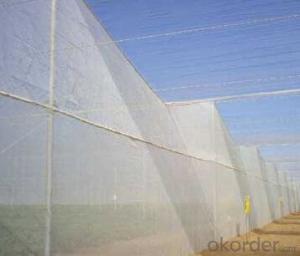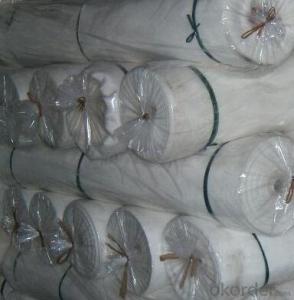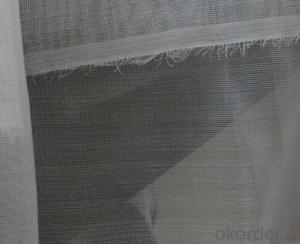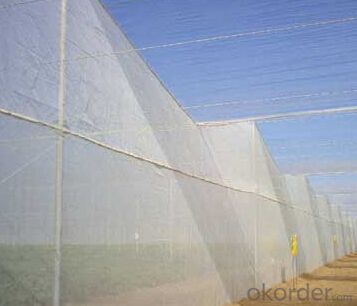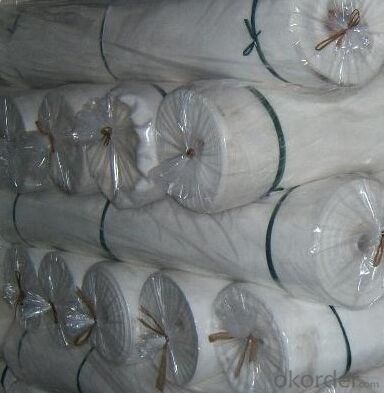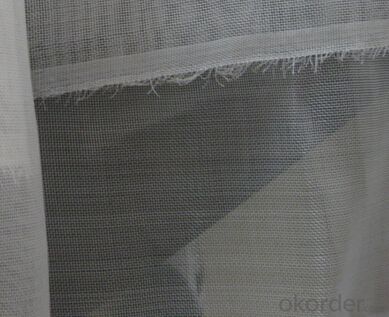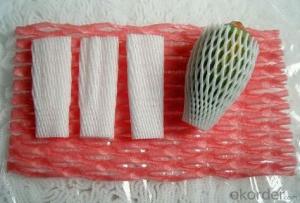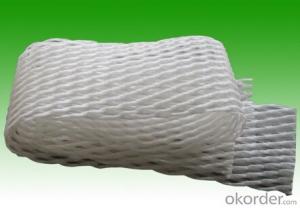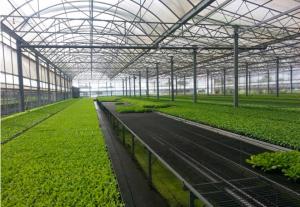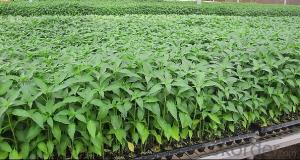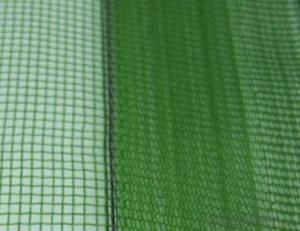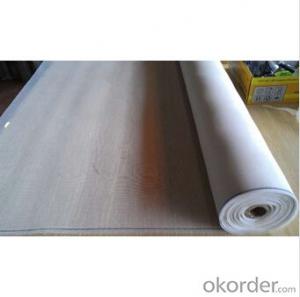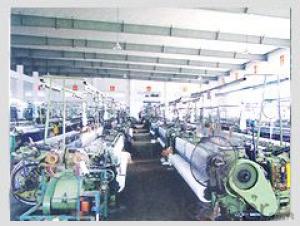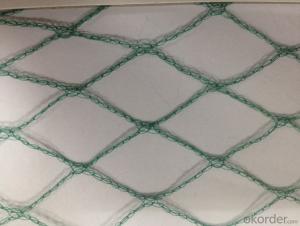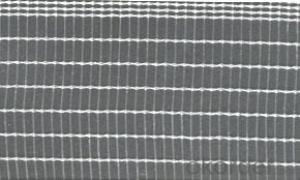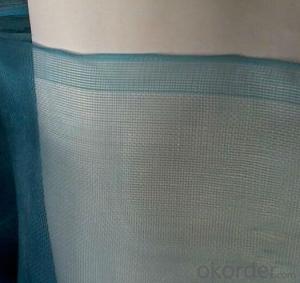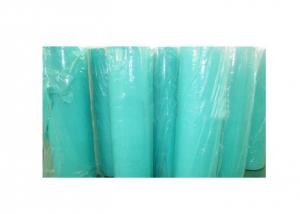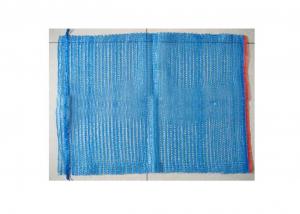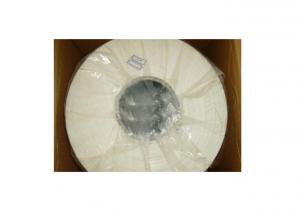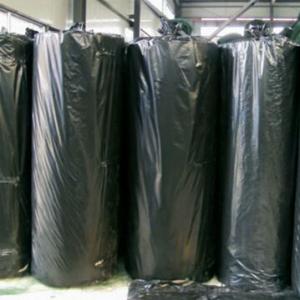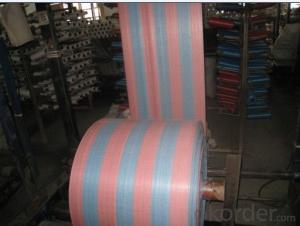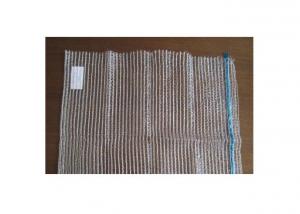White AntiInsect Net for Agriculture Plant
- Loading Port:
- Ningbo
- Payment Terms:
- TT OR LC
- Min Order Qty:
- 40000 m²
- Supply Capability:
- 10000000 m²/month
OKorder Service Pledge
OKorder Financial Service
You Might Also Like
Anti-Insect Net
Introduction:
It is weaved by High-density polyethylene (HDPE) UV stabilized mono filament, and is widely used in greenhouse construction.
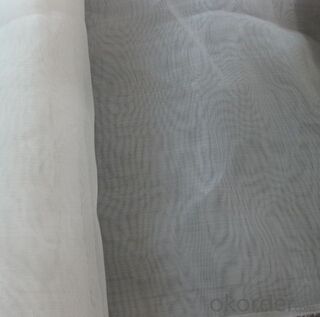
Specifications:
Fabric Weight: 80gsm
Uv. Content: 0.3%
Width: 1m, 1.5m, 2m (can be joined to 10m)
Length: 20m, 50m, 100m
Color: White
Minimum life length: 4 years, under normal weather conditions and use.
Applications:
- Being an effective protection against insects like white fly, etc.
- Helping reduce the use of phytosanitary products against insects/plagues.
- Allowing maximum ventilation in hot seasons.
Packing: rolls on cardboard tubes & wrapped in plastic.
FAQ:
1. How many years can it be used?
At least three years, it can also be customized according to the customer's requirements.
2. What color is it made?
Black, Green, White, Dark Green, Bule o it is customized according to the customer's requirements.
3. How to transport?
Usually, we use the container by sea transportation.
4. When is the delivery date?
Usually the production needs 30 days, then it will be shipping.
- Q: How are plastic shade sails used in horticulture?
- Plastic shade sails are commonly used in horticulture to provide shade and protection for plants. They are installed over gardens or nurseries to shield plants from excessive sunlight, heat, and harmful UV rays. By creating a shaded environment, these sails help regulate temperature, reduce water evaporation, and prevent sunburn or damage to delicate plants. Additionally, they can be strategically placed to control the amount of light exposure, allowing growers to cultivate shade-loving species or manipulate flowering and fruiting cycles. Overall, plastic shade sails are a practical and cost-effective solution for maintaining optimal growing conditions in horticultural settings.
- Q: Can ground cover be used to create a low-maintenance alternative to grass lawns?
- Yes, ground cover can be used as a low-maintenance alternative to grass lawns. Ground cover plants, such as creeping thyme or clover, require less water, mowing, and overall maintenance compared to a traditional grass lawn. They also provide various benefits like reducing soil erosion, attracting pollinators, and adding aesthetic appeal to the landscape.
- Q: What country makes raw plastic?
- Plastics are oil based - so it follows that oil producing countries must have the lead
- Q: Are agricultural plastic products safe for aquatic life?
- Agricultural plastic products can pose risks to aquatic life if not properly managed. Plastic waste, such as mulch film or irrigation tubing, can end up in water bodies and cause harm to marine organisms. It is crucial to ensure proper disposal and recycling of agricultural plastics to mitigate these potential risks and protect aquatic ecosystems.
- Q: What are the potential health risks associated with the use of plastic materials in agriculture?
- <p>There are several health concerns related to the use of agricultural plastic products. These include the potential for leaching of harmful chemicals into the soil and water, which can contaminate crops and enter the food chain. Additionally, the breakdown of plastics can release microplastics into the environment, which may be ingested by humans and animals, posing a risk to health. There's also the issue of pesticide residues on plastic films, which can be harmful if not managed properly. Furthermore, the disposal of plastic waste from agriculture can lead to environmental pollution and potential health hazards if not handled with care.</p>
- Q: What are the different types of plastic wraps used in agriculture?
- There are several types of plastic wraps commonly used in agriculture, including low-density polyethylene (LDPE) wraps, high-density polyethylene (HDPE) wraps, and linear low-density polyethylene (LLDPE) wraps. These wraps are used for various purposes such as mulching, greenhouse covering, silage storage, and bale wrapping. Each type of plastic wrap has different properties, thicknesses, and strengths, allowing farmers to choose the most suitable option for their specific agricultural needs.
- Q: Is plastic glassware dangerous?
- complex subject. query on to yahoo or google. it can assist!
- Q: How do agricultural plastic products help with crop pollination?
- Agricultural plastic products, such as bee hives and blossom bags, can help with crop pollination by providing a controlled environment for pollinators like bees. These products attract and house bees, ensuring their presence in the fields and increasing the chances of efficient pollination. Similarly, blossom bags protect flowers from external factors like wind and rain, promoting successful pollination.
- Q: Can agricultural plastic products be used for aeroponics?
- Yes, agricultural plastic products can indeed be used for aeroponics. Aeroponics is a method of growing plants without soil, where the plant roots are suspended in air and misted with a nutrient-rich solution. Agricultural plastics, such as grow bags, containers, or tubing, can be repurposed for aeroponic systems to hold the plants in place and deliver the nutrient mist to the roots. These plastic products offer durability, flexibility, and resistance to water, making them suitable for aeroponic applications.
- Q: Can ground cover be used to create a natural shade canopy?
- Yes, ground cover can be used to create a natural shade canopy. Ground cover plants, such as low-growing shrubs or spreading vines, can form a dense and leafy canopy that provides shade to the underlying area. This can be especially effective in areas where the growth of taller shade trees is limited.
Send your message to us
White AntiInsect Net for Agriculture Plant
- Loading Port:
- Ningbo
- Payment Terms:
- TT OR LC
- Min Order Qty:
- 40000 m²
- Supply Capability:
- 10000000 m²/month
OKorder Service Pledge
OKorder Financial Service
Similar products
Hot products
Hot Searches
Related keywords
